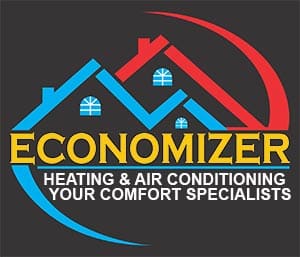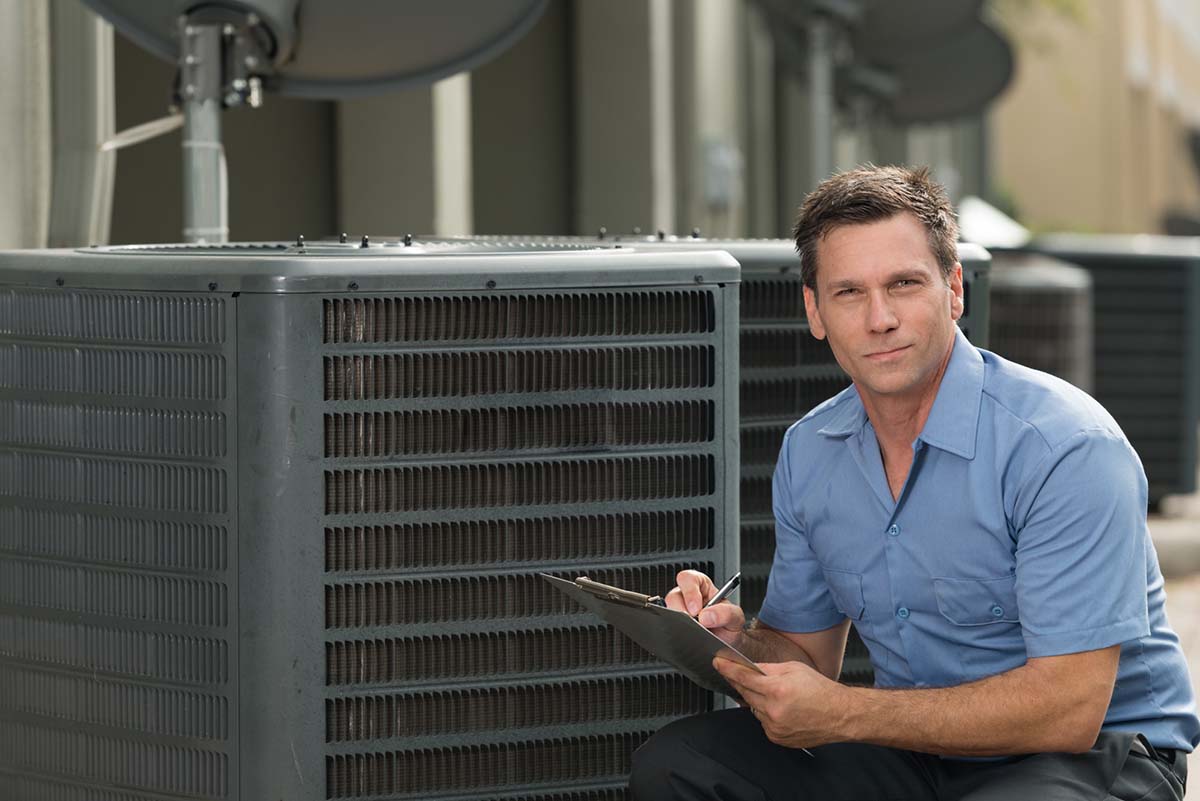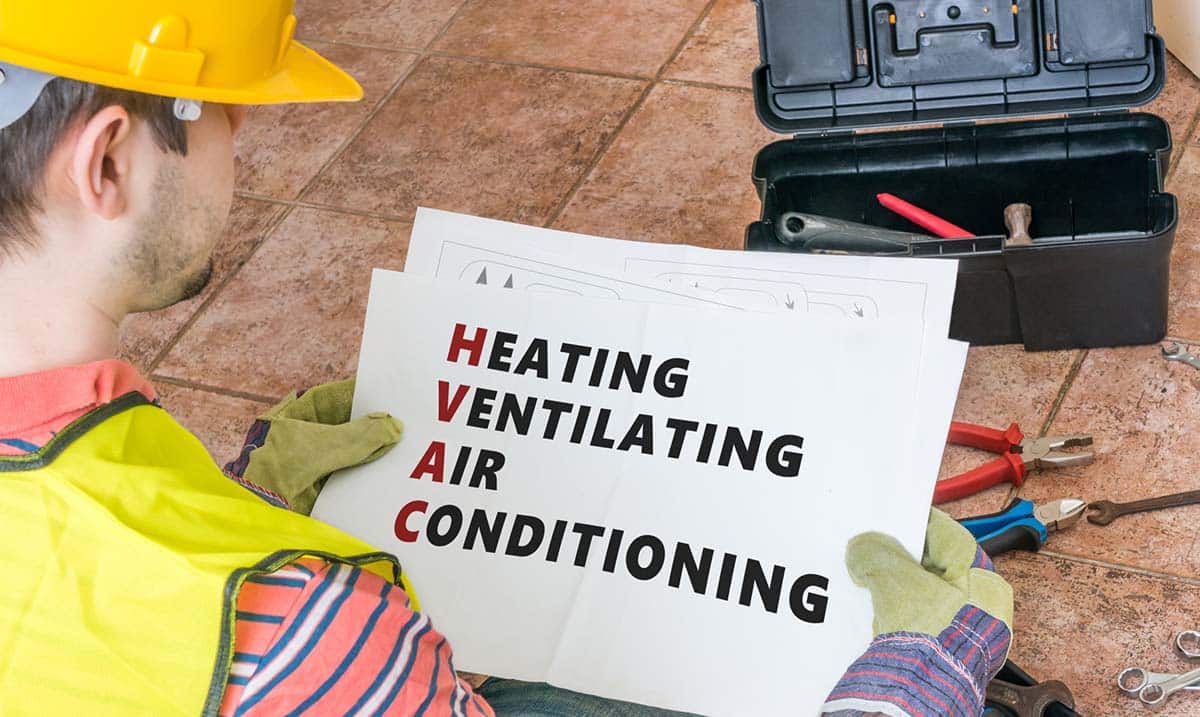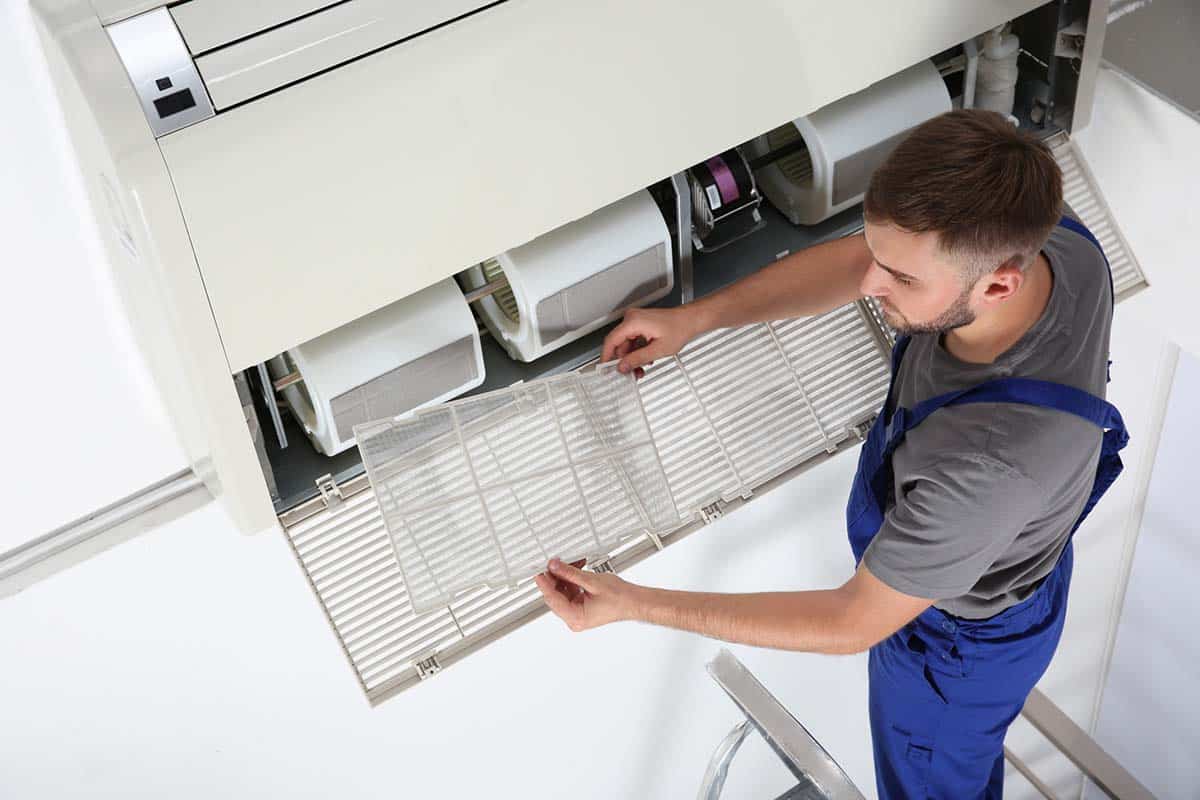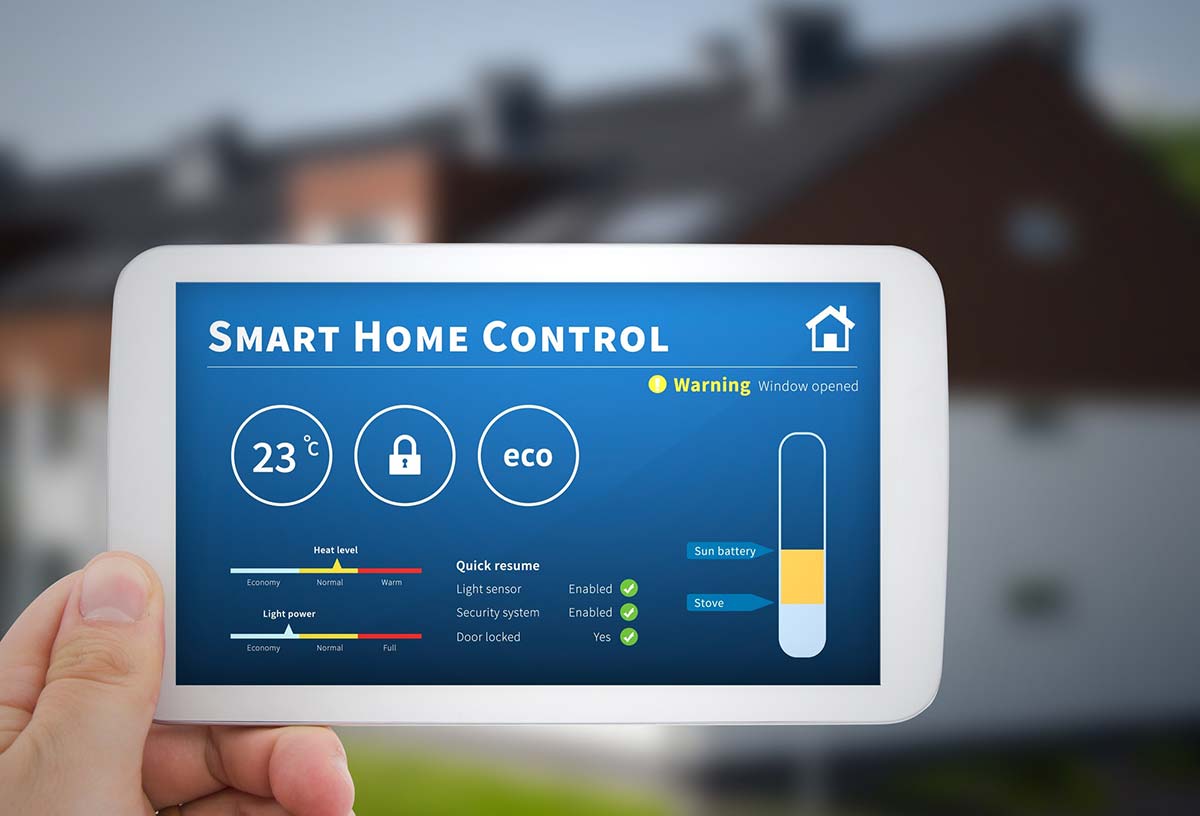Your Guide to the HVAC Filter: What It Is and How to Check It
Your HVAC filter is a key component in your HVAC system and needs regular checkups. We take a look at its key role, and how you can keep it healthy.

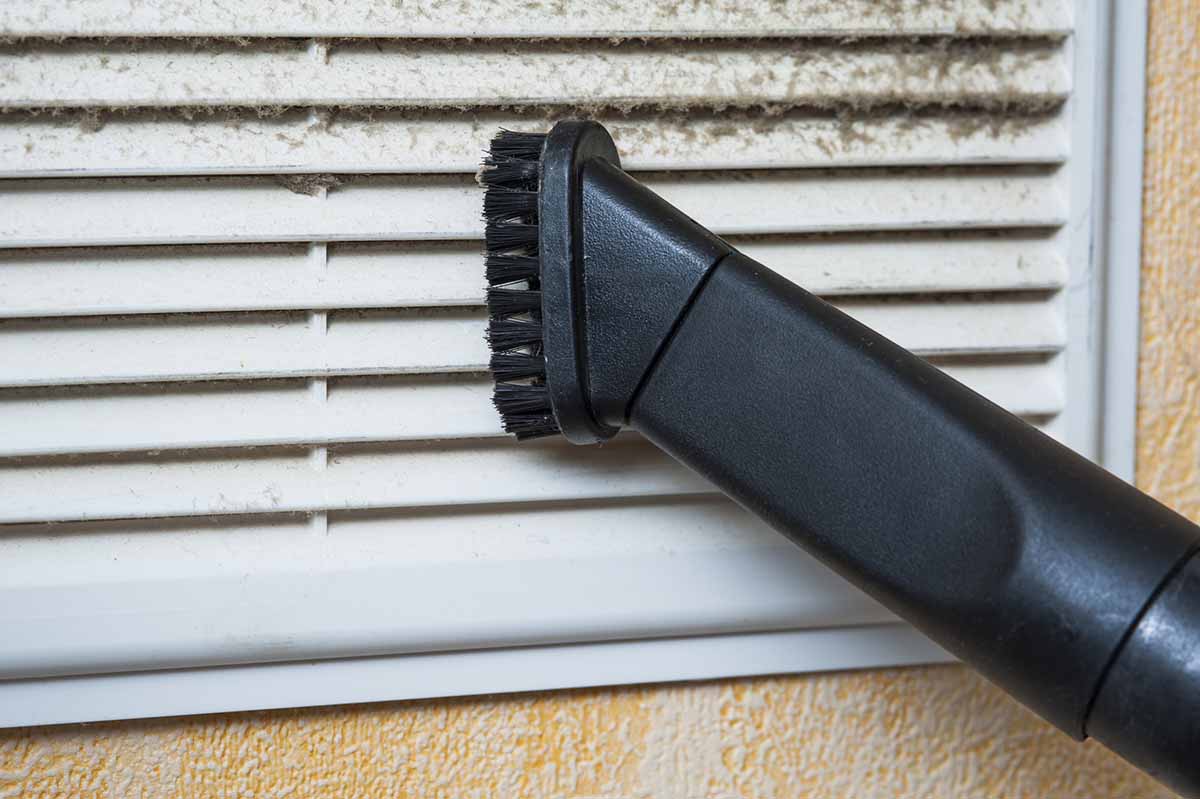
When we hear the word “pollutant,” we tend to think of things drifting in the air outside. Unfortunately, the truth is that we’re just as likely to run into airborne pollutants inside our homes!
According to the EPA, the concentrations of some pollutants are up to 2-5 times higher indoors than outdoors. Because we spend around 90% of our time indoors on average, this can be a pretty worrying statistic.
Of course, it’s worth noting that there’s one important shield between your household and these pollutants: your HVAC air filter. Taking care of this filter can help you remove contaminants and improve your air quality—as long as you do it right. Here’s what you should know about this essential home protection.
What Is an HVAC Air Filter?
An HVAC filter is a flat, semi-permeable barrier that sits in the vent dividing your HVAC system from the rest of your home. Depending on the type of HVAC system you own, you may have more than one filter—one for the air conditioner, and one for the furnace.
When your HVAC system blows heated or cooled air into the rest of your home, the air moves through this filter. In doing so, the filter has the chance to block airborne contaminants, which become trapped in the material of the filter. In other words, your filter is what ensures that you’re blowing clean air throughout your home instead of circulating contaminants from room to room.
What Does It Mean if a Filter Has a MERV Rating?
If you’ve ever shopped around for an air filter, you may have noticed that they often come with a MERV rating. This stands for Minimum Efficiency Reporting Value, and it runs on a scale from 1 to 16.
The MERV rating of an air filter helps you understand how well it captures airborne contaminants. Air filters that rank higher on the MERV scale have the highest filtering ability, while filters with lower ratings will allow more contaminants to pass into your home. In other words, in a choice between similar air filters, it’s always smart to buy the one with the higher rating.
What Are the Different Types of HVAC Filters?
Not all air filters are created equal. Your choice of the best HVAC air filter for your home will depend on your household makeup, your HVAC system, and your personal needs. Here’s a quick rundown of the different types available:
Fiberglass Air Filters
These air filters are common, affordable, and disposable. They also tend to be flat-paneled, meaning they’re a single sheet of material. They can ensure that your HVAC system has to strain less when drawing in air, but they tend to have lower MERV ratings, which means that they don’t always do a great job of keeping airborne particles out.
Pleated Air Filters
Air filters with pleated material have a greater surface area, which can help them trap more airborne contaminants. These filters tend to be made of cotton or polyester, and they can often catch smaller pollutants than fiberglass filters, earning them slightly higher MERV ratings.
Reusable Air Filters
These air filters are easy to wash and reuse, which makes them great for any eco-minded homeowner. Though they tend to be more expensive than disposable alternatives, they’ll allow you to reuse them for a few years. Though you’ll have to maintain them with care, and they don’t have as high a MERV rating as other filters on this list, they can be a great option for simple filtration needs.
UV Light Filters
These filters use ultraviolet lights to kill bacteria, viruses, and microorganisms in your home. However, they’re not always great at removing other airborne contaminants, so it’s important to weigh your options and check the MERV ratings.
Electrostatic Air Filters
These filters use static to trap dust and airborne particles. It’s easy to find either disposable or reusable electrostatic filters with a range of MERV ratings.
HEPA Filters
This is the gold standard when it comes to air filters, as these can remove up to 99.97% of airborne contaminants. This, of course, makes them expensive, but they’re an ideal choice for households with allergies or respiratory issues.
When and Why Do You Need to Check Your Filter?
Although your air filter will do a great job of blocking airborne contaminants at first, its effectiveness will lessen over time. As dust, pollen, pet dander, mold spores, and other contaminants build up on the surface of the filter, it can become harder and harder for your HVAC system to push air through the filter. This may mean that your HVAC system has to work harder to circulate air—a strain that you’ll notice when you get your utility bill each month.
In order to ensure that you always have a clean filter in place, it’s important to check and change your filter as part of your regular maintenance plan.
You’ll want to look for a buildup of dust or debris on the filter—but that isn’t the only way to tell that you need to replace it. Consider these tests as well:
- A buildup of dust near your heating or cooling vent
- Allergy or respiratory symptoms in members of your household
- Your HVAC is running hot
- A white sheet or pillowcase hung by the filter gets grimy or dirty
- Your utility bill has spiked
- Your air isn’t as cold or as warm as it should be
Experts recommend switching out your filter every 30 to 60 days. However, you may need to do it more often if you have pets, if anyone in your home has sensitive respiratory issues. Your filtration needs will also depend on the size of your home and how often you run your HVAC system.
Get More Out of Your HVAC Air Filter
To ensure the health of your HVAC unit—and of everyone in your household—it’s important to take good care of your filter. The right HVAC air filter can help protect your home with clean air, so make sure you’re taking the time to check and replace it as needed!
If you’re not sure how to switch your filter out, or if you’re having issues with your unit, be sure to let us know. Our experienced team can help you with all of your maintenance needs, so be sure to get in touch with us to learn what we can do for you.
